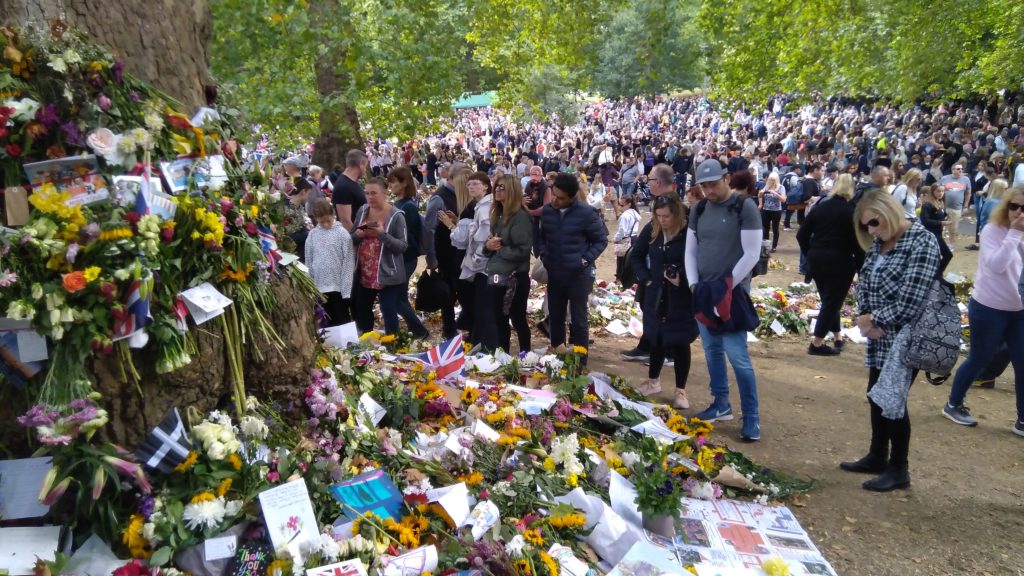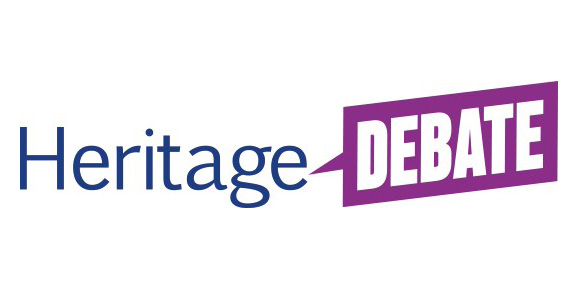Blog from Dr Sarah May & Prof Cornelius Holtorf on the future of heritage.
Shared in the lead-up to The Heritage Alliance’s Heritage Debate 2022: Heritage in 20 years.

Heritage in 20 Years: what will matter most?
Cornelius: You and I have long been working on heritage futures but I don’t think we ever asked what heritage will matter in 20 years, in 2042.
Sarah: Well 20 years is such a short time compared to the long-term futures we usually think about! But I’ve gradually become more convinced that it is the present we need to understand better.
Yes, heritage is something we create and use in the present. But it is also something we create, or protect, for the future.
Well that’s certainly what people say, maybe it feels less selfish. But much as there are multiple experiences of the present, there are multiple futures too. If we do not know which 2042 we are talking about, we can’t know what heritage will matter at that time.
I think that in 2042, people will create heritage to build trust and solidarity together—an identity they share rather than one they use to distinguish each other. I can see various 2042s in front of me where this could be a heritage that matters.
Why? What presents and what futures will a heritage practice like that serve?
For 2042, we can anticipate more climate migrants in the world. We are also likely to see more elderly people who live longer and are healthy and active. And there might still be major political conflicts in the world, maybe involving China, Russia, some of the Arabic countries, and the US.
What will matter most could therefore be the heritage that is co-created by migrants and hosts, by young and elderly citizens, and by the people of different countries. All these people share so much more with each other than what divides them. Heritage is one way of expressing these commonalities and in that way build stronger and more peaceful societies. This kind of scenario also serves the present because it gives us hope and courage to work for a future that might be better as a result.
Always the optimist! Those are certainly good reasons for heritage to focus on trust and solidarity. But thinking about the future isn’t just thinking about the futures we want. Heritage is too powerful not to serve the needs of the powerful – those people you imagine co-creating heritage of solidarity have very little influence on heritage narratives now. I can’t see a timeline that would centre their needs so quickly. Of course, unity can exist in the service of power, and that has been the way that heritage has worked as a cultural force recently, but it has dangers because it can consolidate, even naturalise inequality.
Always so negative! What heritage will matter in your view of 2042?
My vision of heritage in 2042 is less coherent—both than your vision and than current structures. Those same influences, climate migration, aging population, geopolitical instability will broaden what people see as heritage, break down some of our lists and frameworks—move heritage to a broader practice than management. What will matter, people rather than structures.
Now you are imagining a future you want! And I can’t blame you for that…
About the authors:
Cornelius Holtorf (Linnaeus University, Sweden) and Sarah May (Arup, UK) have been collaborating for more than twenty years, currently linked to the UNESCO Chair on Heritage Futures.

Explore other perspectives on ‘Heritage in 20 Years: what will matter most’ over on our event page for Heritage Debate 2022.

